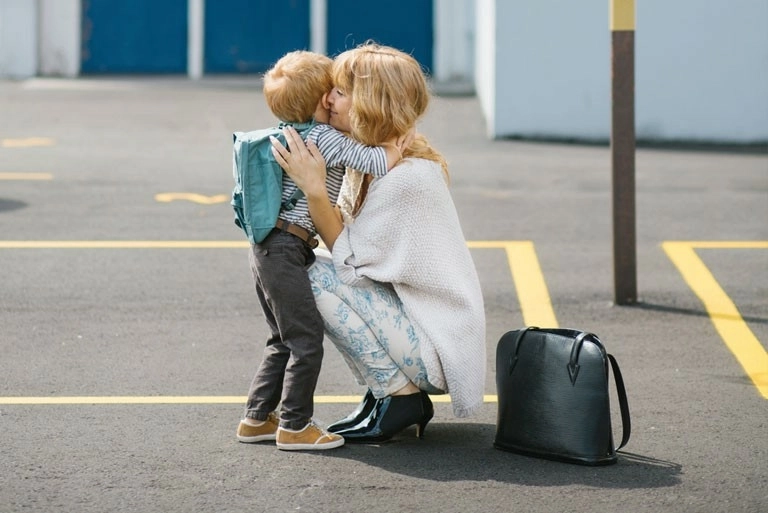Transitions can be stressful for families, especially if it involves children. When back to school approaches, it is normal for parents to worry about shopping for school supplies, adjusting to new routines, and getting health checkups. What is not always top of mind is the stress and anxiety both parents and children can feel during this time, which can impact the emotional well-being of our families.
While children may feel excitement to see friends again or learn new subjects, going back to school requires a change from unstructured summer days to a more regimented routine. Suddenly, children need to make sure they are on time to catch school buses, remember to pack their lunches, and complete homework assignments. Other factors can include stress related to social dynamics at school, like fitting in, bullying, and dealing with peer pressure.
Although any transition can be difficult, there are ways to address these causes and ensure your family has a smooth start to the new school year.
What are the common causes of stress?
The common causes of stress can differ based on the age of your children. Below are some of the themes depending on your child’s age:
Preschool and elementary school age: When your children are young, they may feel separation anxiety from you when they go to school. Some children may also deal with stress around adapting to new teachers and classmates.
Primary and middle school age: During this time, many children may find it difficult to adjust to a new school and establish their own identity. Some of the biggest concerns may involve making new friends, fitting in, or trying to become more independent.
High school and college age: Social situations like bullying, pressure to fit in, and appearance, can be a source of stress for teens. In addition, as they start thinking about the next steps after high school, they can deal with anxiety related to college applications and get into a college of their choice. For students that are already in college, finances may be a source of stress as tuition bills start to arrive.
How do the causes of stress differ from parent to child?
The main difference between the stress that you may feel versus what your child experiences can be described as “responsibility” versus “expectation.”
Parents face stress related to “responsibility” because it is your role to take care of your children and keeping them safe. For example, they may push their children to participate in extracurricular or after school activities which can cause additional stress. Parents can also feel responsible if children are not doing as well as they should be academically.
For children, their stress is related to “expectations.” Their concerns are focused on trying to fit in with their peers, establishing their identity and independence, and finding balance in what is expected of them by their parents, teachers, and peers.
What can parents do to help alleviate stress for themselves and their children?
- Be involved with your child’s school. When you talk to your child’s teachers, make sure you understand what is needed for a successful start to the school year. This is also an opportunity to be on the same page should a problem arise and know how to best communicate with teachers as you need to.
- Take the time to talk to your children about what worries them. When your child knows that they can come to you when there is an issue, this relieves a lot of stress and anxiety because they know they have your support.
- Give your child reassurance. Should an incident or concern arise, seek to understand and validate your child’s feelings and let them know that you will be there for them.
- Give yourself a time out once in awhile. As hard as it may be, taking a deep breath to step back and think about the things that you can and can’t change will give you perspective. Though it may be difficult, letting your children learn to become independent is a part of growing up and your role as a parent.
- Don’t be afraid to seek help. When things feel too overwhelming, remember you are not alone. Reaching out to trusted family, friends, or a psychologist can help alleviate stress and anxiety that you or your family may feel during this time.
If you’re unsure of how to get started in preparing for the transition back to school, here are 12 Tips for a Healthy Back to School.
About the author

Dr. Nikole Benders-Hadi is a board-certified adult psychiatrist who passionately believes access to mental health treatment should be available to everyone. She completed her undergraduate education at Johns Hopkins University, followed by medical school and residency training at New York University School of Medicine. She then completed a fellowship in Public Psychiatry at Columbia University. She has also done research on women’s mental health issues. Her approach to treatment is patient-centered and recovery-focused, dedicated to reducing mental health stigma and providing treatments that help patients maintain the quality of life they deserve.



